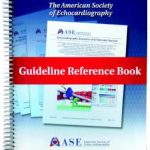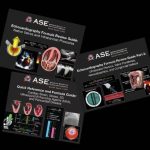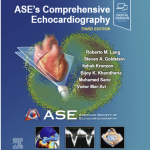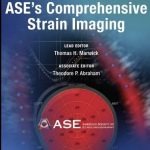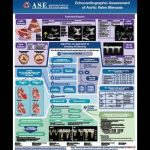
FOR IMMEDIATE RELEASE
Contact: Angie Porter
919-297-7152
APorter@ASEcho.org
ASE’s ImageGuideEcho Registry Welcomes Four New Participating Institutions and Bristol Myers Squibb as a Sponsor
(DURHAM, NC, May 14, 2024)—The American Society of Echocardiography (ASE) is pleased to announce the addition of four new participating institutions to its renowned ImageGuideEcho RegistryTM. Over the past year, ASE has seen significant growth in its Registry, with the inclusion of Allina Health, Children’s Mercy Kansas City, University of Pennsylvania, and Lee Health. These institutions join six previously enrolled institutions aiming to support the Registry’s ongoing efforts to assess specific quality metrics and patient outcomes to drive technology application and quality improvement within the field of echocardiography and patient care.
Allina Health, a leading healthcare system based in Minnesota, became a participating institution on August 25, 2023. Children’s Mercy Kansas City, the first pediatric medical center to enroll in the Registry, joined on December 11, 2023. The University of Pennsylvania, renowned for its exceptional medical education and research, became a participating institution on February 22, 2024. Lee Health, a leading healthcare system in Southwest Florida, joined the Registry on March 28, 2024.
“We are thrilled to have these new institutions as a part of the ImageGuideEcho Registry,” said Jordan Strom, MD, MSc, FASE, ASE ImageGuideEcho Registry Committee Chair. “ With the addition of these four institutions, the Registry now encompasses an even broader range of healthcare settings, enhancing its ability to capture a comprehensive snapshot of echocardiography practice in the United States. This expansion reflects the growing recognition of the Registry’s value in improving patient outcomes and promoting evidence-based practice.”
In addition to the new participating institutions, ASE is proud to welcome Bristol Myers Squibb as a Gold Sponsor. Bristol Myers Squibb’s support will enable the Registry to further its mission of promoting excellence in cardiovascular ultrasound and improving patient outcomes.
“At Bristol Myers Squibb, we are committed to transforming patients’ lives through science,” said Cecilia Marta, PhD, CMD, VP, Head of U.S. Medical Cardiovascular and Established Brands, Bristol Myers Squibb. “We are proud to support ASE’s ImageGuideEcho Registry, as it aligns with our desire to advance cardiovascular care and underscores our belief in the power of data-driven insights to drive meaningful change for patients.”
The Registry serves as a comprehensive resource for healthcare professionals, providing valuable data and insights to enhance the quality of echocardiography imaging. The addition of these four institutions and the support of Bristol Myers Squibb, helps bolster the continued growth and success of the ImageGuideEcho Registry.
“We are extremely grateful to Bristol Myers Squibb for their commitment that will help us further our mission of promoting excellence in cardiovascular ultrasound and improving patient outcomes,” said Dr. Strom. “I encourage other institutions and sponsors to join the Registry and contribute to the ongoing efforts to enhance the quality and safety of echocardiography. By participating in the Registry, institutions can gain access to valuable data-driven insights, identify areas for improvement, and benchmark their performance against national standards.”
About ImageGuideEchoTM Registry
ImageGuideEchoTM is a comprehensive database that collects data from echocardiograms performed across the United States. The Registry data provides valuable insights into the use and outcomes of echocardiography and helps clinicians make informed decisions and improve the quality of care at their institutions. For more information on the registry and enrollment, please visit ImageGuideEcho.org or contact Registry@ASEcho.org.
About ASE
The American Society of Echocardiography (ASE) is the Society for Cardiovascular Ultrasound Professionals™. ASE is the largest global organization for cardiovascular ultrasound imaging serving physicians, sonographers, nurses, veterinarians, and scientists and as such is the leader and advocate, setting practice standards and guidelines for the field. The Society is committed to advancing cardiovascular ultrasound to improve lives. For more information visit ASE’s website ASEcho.org or social media pages on Facebook, X (formerly Twitter), LinkedIn, or Instagram.
###


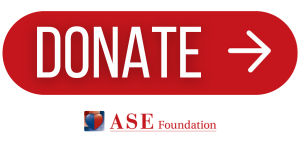

 Now is your chance to become a leader in ASE and the ASE Foundation! If you are an active member and meet the criteria outlined for the position, ask a friend or colleague who is also an ASE member to submit a nomination on your behalf. All available positions are open to any ASE member, regardless of their specialty, and we are looking for a diverse pool of nominees.
Now is your chance to become a leader in ASE and the ASE Foundation! If you are an active member and meet the criteria outlined for the position, ask a friend or colleague who is also an ASE member to submit a nomination on your behalf. All available positions are open to any ASE member, regardless of their specialty, and we are looking for a diverse pool of nominees.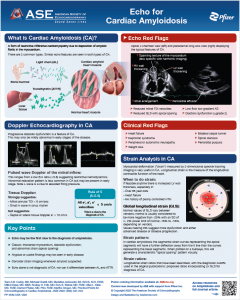
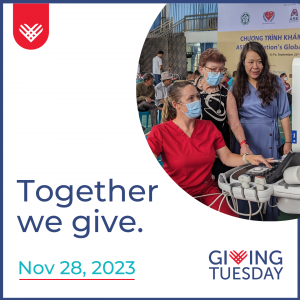 GivingTuesday is next week on November 28, but the ASE Foundation will be
GivingTuesday is next week on November 28, but the ASE Foundation will be 
